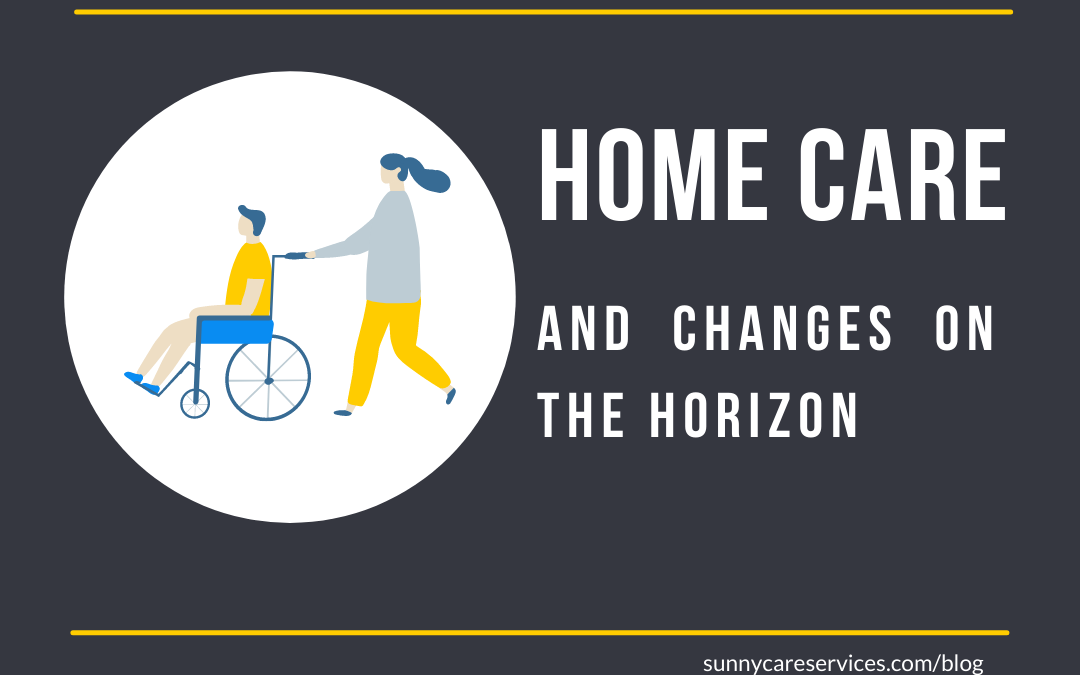Lost and Found: Finding What Your Loved One Left Behind
Finding forgotten assets is one of the most daunting tasks for anyone managing

Bringing you another round of innovation in the senior care space from Justin Hammond of Comprehensive Care, an Alleo company. Justin has worked in the senior care space since 2014 and has been on the frontlines of home care and observing how this industry has grown and changed (for better or worse!). Read more to see Justin’s insights into how home care specifically is changing and how to spot the home care companies that are the best fit for your family.
In what ways do you see the homecare field changing? How have you seen it evolve?
As a whole, non-medical home care is being more widely recognized in the healthcare world as an “essential” piece of the care puzzle. For many years, home care was termed “ancillary” or simply termed as a “sitter service”. These terms are far from the reality of what a good home care company provides its clients and patients. Over just the past 5 years, I have watched the niche industry of home care change from moderately competitive to desperately competitive when it comes to staffing. This change was predicted because of the rise in baby boomers aging into need for care, but it doesn’t remove the feeling of desperation for the quantity of quality staff. This strain has caused a hyper-focus on our niche industry from the top of the healthcare food chain (hospitals) all the way to the bottom. Home care agency owners are becoming increasingly creative about offering sign-on bonuses and above average wages to workers, just to keep up with the demand, hoping only to break even with their costs. Soon, Medicare Advantage plans will cover services from a non-medical home care agency, but that actual process is still in its infancy and learning curve!
What are some guidelines and laws that you all have to abide by that feel antiquated? How do you think those should change?
We are licensed in TN and GA and the license laws are so different. In approaching other states for licensure, like AL, some states do not even require a license! This feels antiquated and like there should be more standardized regulations across the states for some parts of home care that are basic in nature, and allowing state regulations to play a part in meeting needs specific to each unique state.
What are some of the biggest challenges home care companies are up against?
Staffing! I think any agency would answer the same! The availability of QUANTITY of QUALITY caregivers is not growing quickly enough to keep up with the demand of new seniors aging into the healthcare arena. All agencies across the county (and even the world) are facing a crisis now that will only worsen as time goes along and we continue to travel into the rise of Baby Boomers needing care.
Are there any changes on the horizon for comprehensive care or home care in general that you are excited about?
Home care is a rapidly changing industry and I feel like we are constantly trying to rethink of ways to do business and adapt to this challenging market with staffing struggles. I am honestly the most excited about the fact that CMS is realizing how valuable and essential non-medical home care is to the healthcare continuum and law makers are forging the way for Medicare Advantage to cover our services. This has already been passed into law, but it takes time for insurance companies to create policies, for policy holders to purchase and take claims on these policies and for home care agencies to figure out how to provide fast and cost-efficient care for the insurance companies! It’s all in the works, but we are heading in the right direction for home care companies and it will benefit our families who want their loved ones to stay at home!
What makes a good home care company good? And how does that look for the care of the patient specifically?
Contrary to what you may think, it is not its caregivers!! No, a great agency is not defined by its staff! When you are looking at the business, you need to know who the operational team is and how they manage the caregivers! Usually a caregiver agency is run by 4-5 operational staff for every 80-100 caregivers! These are the people that help resolve issues and overcome challenges with staffing shortages and help clients manage the care they are receiving at home. Despite every effort to retain caregivers, every agency will face attrition and turnover throughout the year, so the actual caregiver team looks different year after year, however, the operational staff will remain more consistent! So if you are looking for ways to evaluate the success of a home care company, look at the turnover of operational staff members!
Thanks so much Justin for sharing this insight with us!
To contact Justin and his team, email jhammond@alleohealth.org
Finding forgotten assets is one of the most daunting tasks for anyone managing
As I was preparing to leave for a BIG trip with my husband
We can’t say enough how important it is to work with an estate
We care for families going through the major life transitions brought on by an aging loved one or losing a loved one. Our goal is to relieve the burdensome tasks from your plate so you can focus on what’s most important to you and your family.
Sunny Care Services is a planning and concierge service for families who have lost a loved one or are preparing for a loss.